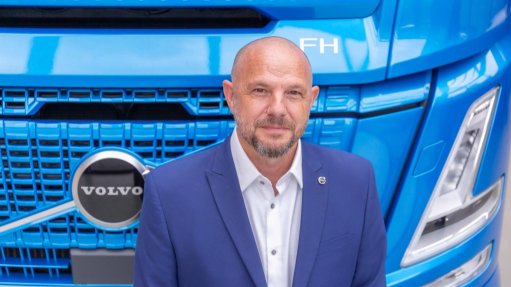New economic frontier for climate change action
Last year marked a tectonic shift in the climate change arena, and this was spurred on by the recognition by the European Union (EU) that no ‘crisis should be spoilt’ as Europe moved to change the direction of the world by hard-wiring deeper carbon cuts as part of the bloc’s Covid-19 recovery strategy.
The EU announced far-reaching measures as part of its Build Back Better strategy, which involves injecting significant resources into its recovery package. At least €800-billion has been allocated as part of a package of measures under the EU Green Deal. China too has plans to reach carbon neutrality by 2060 and has signalled to the world that it will no longer fund coal projects abroad.
The US has yet to come up with better Nationally Determined Contribution targets, and this will require it to win over recalcitrant US coal mining states.
When the EU made its announcement, it was as if it was saying: “It’s the economy, stupid.” It did not behove the EU to say this only to its own constituencies; the issue of climate change and Africa’s own delayed economic transformation are interlinked. Climate and the new economy are not two different stories, but one, given their increasingly coupled relationship. There is increased convergence at other fronts too, such as geopolitics, the reordering of global finance and trade, industrial and technological innovation, as global decarbonisation is thrusting upon us as a new modernity.
Investments in climate-related initiatives and the surge in new types of technology have come and gone. Just consider Exxon Mobil’s research into battery technology in the 1970s, which was later abandoned, owing to the decline in oil prices. As the saying goes, had we invested in Apollo-type ambitions for the climate back then, we would not be in the red zone today.
Clearly, energy transitions are about politics, and those who have captured the voices and allocations within the global economy will determine the pace of the transition. The oil, coal and gas industries were not going to let go of that addiction yet, and we must remember that the very power of the dollar, as the premium reserve currency, is linked to the sustainability of the fossil fuel industry. We are in that interregnum – as the Gramscian saying goes – between the old and the new, with the new slowly disrupting the old.
It is now all about the economy, and the green label has not quite worked a charm in Africa yet, because climate issues have to shift from just being environmental rights issues to economic rights issues and economic opportunities.
There are several reasons for this. Firstly, much of the environmental movement itself has taken a strong rights-based approach and it is only now that it is slowly getting its teeth into the evolution of second-order rights. This movement has been strong on rights-based issues and has long built the requisite infrastructure for this and may not have developed the requisite skills and infrastructure for engaging economic transformation issues. It’s insufficient to be rhetorical about it; one has to be more concrete. It is insufficient to simply say coal and gas must go; the alternatives must meet what one can call the displacement equivalent.
Secondly, deep economic transformation that reduces dependence on exports of commodities is not going to easily persuade path-dependent elites that simply putting green electrons into the system is going to be an equivalent displacement. The reality is that the new frontier will have to be built from the bosom of the existing. In countries where rights do not exist or the public space is being eroded, screaming from the rooftops seems to have limited potential to loosen the hold of the elite. New types of engagement strategies need to be developed. The ‘same old, same old’ may have its merit, but you have to ask: Has it really worked? Sometimes it’s the right crisis and the right time that move things along and you have to grab those moments and really change things for the better, because they may never come back again. Certainly, the gearing of net zero globally may offer a new momentum behind a forgotten conversation: how to make African economies truly inclusive, if we are to survive the new modernity.
Thirdly, the African continent is full of templates of green revolution and green deals that seem to be somebody else’s idea of what is good for the continent. One is reluctant to slam these gestures of good intentions, but they often betray naivety and hypocricy. African economies do not exist outside the rest of the world. African economies are structurally tied to the economies of the world and, in a specific case, the EU remains a key partner of Africa.
What goes on in Africa is often decided in London, Paris or Berlin. So, why activists and movements that are based in global north don’t tackle the Africa question in their own capitals, seems a bit of a puzzle. Why not cross- fertilise with African activists to see that money sitting in tax havens is not used to boost the sovereign currency of the pound or dollar or euro but to support the economic transformation agenda of Africa? There are so many contradictions in the climate campaign world – contradictions that are papered over or left on the wayside for another day.
Given the shift that is happening, the issue for the continent is not all about ‘the same old, same old’ as far as climate change is concerned, but a fundamental intellectual and cognitive shift in actively shaping the conditions for new types of investable trajectories in climate resilience and clean energy technologies. The priority countries are going to be coal, oil and gas countries, given their stats and share of exports, which carry most of the continent’s gross domestic product. Climate and economic transformation issues are interlinked, and for Africa, its own development trajectory will depend on how the two are seamlessly interlinked.
Article Enquiry
Email Article
Save Article
Feedback
To advertise email advertising@creamermedia.co.za or click here
Press Office
Announcements
What's On
Subscribe to improve your user experience...
Option 1 (equivalent of R125 a month):
Receive a weekly copy of Creamer Media's Engineering News & Mining Weekly magazine
(print copy for those in South Africa and e-magazine for those outside of South Africa)
Receive daily email newsletters
Access to full search results
Access archive of magazine back copies
Access to Projects in Progress
Access to ONE Research Report of your choice in PDF format
Option 2 (equivalent of R375 a month):
All benefits from Option 1
PLUS
Access to Creamer Media's Research Channel Africa for ALL Research Reports, in PDF format, on various industrial and mining sectors
including Electricity; Water; Energy Transition; Hydrogen; Roads, Rail and Ports; Coal; Gold; Platinum; Battery Metals; etc.
Already a subscriber?
Forgotten your password?
Receive weekly copy of Creamer Media's Engineering News & Mining Weekly magazine (print copy for those in South Africa and e-magazine for those outside of South Africa)
➕
Recieve daily email newsletters
➕
Access to full search results
➕
Access archive of magazine back copies
➕
Access to Projects in Progress
➕
Access to ONE Research Report of your choice in PDF format
RESEARCH CHANNEL AFRICA
R4500 (equivalent of R375 a month)
SUBSCRIBEAll benefits from Option 1
➕
Access to Creamer Media's Research Channel Africa for ALL Research Reports on various industrial and mining sectors, in PDF format, including on:
Electricity
➕
Water
➕
Energy Transition
➕
Hydrogen
➕
Roads, Rail and Ports
➕
Coal
➕
Gold
➕
Platinum
➕
Battery Metals
➕
etc.
Receive all benefits from Option 1 or Option 2 delivered to numerous people at your company
➕
Multiple User names and Passwords for simultaneous log-ins
➕
Intranet integration access to all in your organisation

















